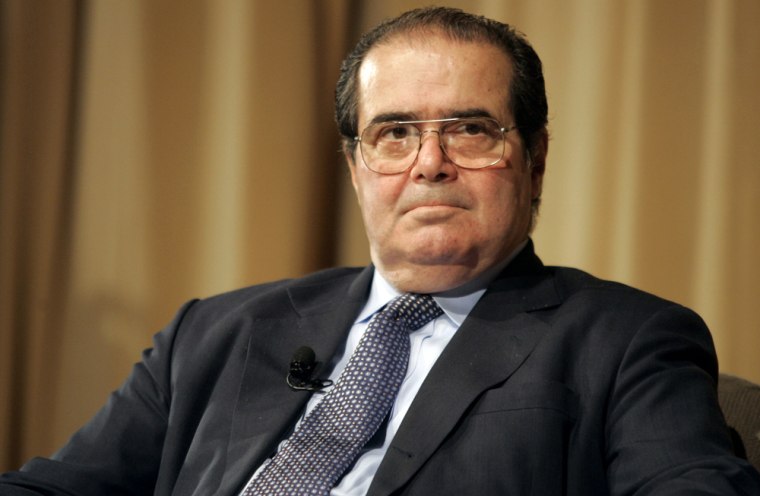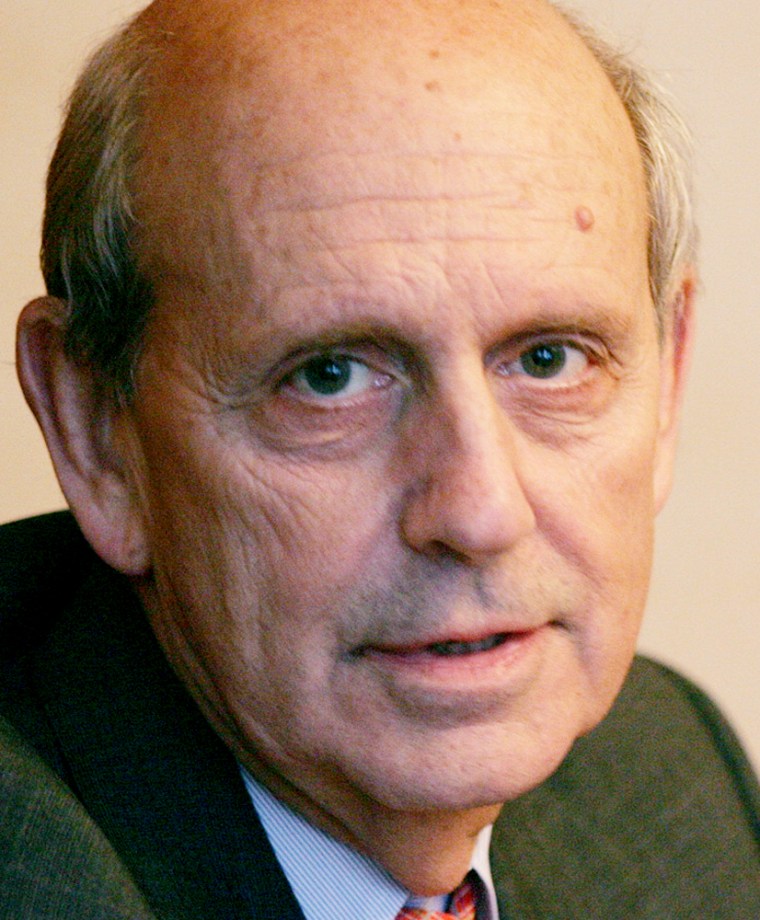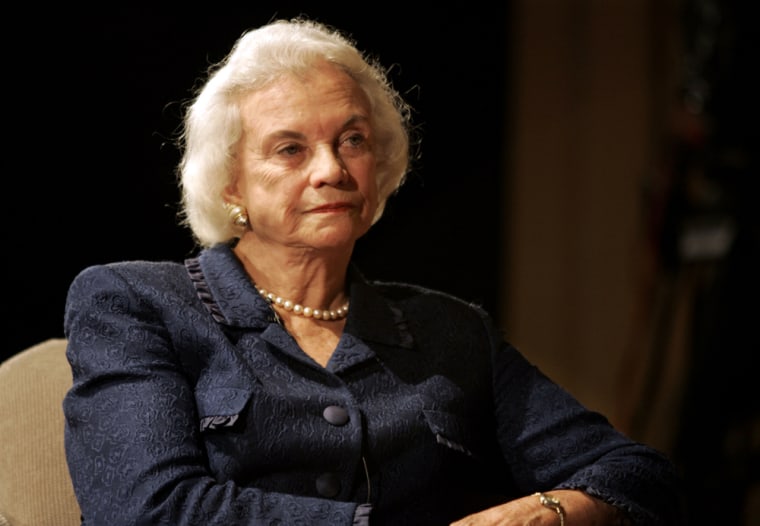In a rare public appearance where they fielded a range of questions, three U.S. Supreme Court justices said they weren't surprised that politicians, as well as other Americans, might often disagree with their rulings.
Justice Sandra Day O’Connor, Antonin Scalia and Stephen Breyer participated in the lively, one-hour discussion at the National Archives and before an audience Thursday night.
O'Connor noted presidents and lawmakers have often shown "ill feelings" towards Supreme Court rulings and that "this isn't new."
Citing Bush v. Gore — the case that decided the 2000 election in favor of George Bush — Breyer added that the court sometimes makes rulings that "lots of people in the country feel are totally wrong and emotions run very high on a lot of these issues."
But that's "hardly surprising," he said, adding that what is amazing is that the criticism is peaceful and that critics "follow the rule of law."

Scalia voiced concern that critics could try to "seize control" of the Supreme Court because "judges have become political entities much more than they ever were."
"Something very fundamental has changed," he said. If judges start interpreting the Constitution to suit political views, he added, then the Supreme Court "becomes a very political institution and when that happens the people in a democracy will try to seize control of it."
Use of foreign cases debated
On another issue, O'Connor dismissed growing criticism about the Supreme Court’s use of international law in its opinions, saying it makes sense for justices to look at foreign sources when a point of law is unclear.
She said if there is no controlling U.S. precedent or the viewpoint of states is unsettled, “of course we look at foreign law.”
“This is much ado about nothing,” she said in response to a question by moderator Tim Russert, the host of NBC's "Meet the Press." “Our Constitution is one that evolves. What’s the best way to know? State legislatures — but it doesn’t hurt to know what other countries are doing.”
O’Connor’s comments come amid a growing divide on the court over the citation of international opinion to support decisions interpreting the Constitution. Last month, justices ruled 5-4 to outlaw the death penalty for juvenile killers, citing in part international sentiment against it.
O’Connor, who dissented in that ruling, wrote in a separate opinion that international law was relevant but in that case wasn’t strong enough to justify striking down the practice since many state legislatures still allowed it.
Earlier this week, House Majority Leader Tom DeLay singled out Justice Anthony Kennedy’s work as “incredibly outrageous” and “activist,” citing his majority opinion in the death penalty case in particular because the Reagan appointee uses international law and “does his own research on the Internet.”
Three of the justices — Scalia, Chief Justice William Rehnquist and Clarence Thomas — have said foreign law has no relevance. Scalia has been increasingly critical of the practice in recent months, pointing to decisions in recent years to decriminalize gay sex and ban the execution of the mentally retarded.
Scalia counters O'Connor
“I don’t agree it’s much ado about nothing,” Scalia said in response to O’Connor. Regarding the death penalty case, he said the majority led by Kennedy “contradicted the view of the majority of the states.”
“I don’t see how international law is relevant. I don’t know what a South Africa court will tell you about American law,” he said.

Breyer countered: “It’s appropriate in some instances to look at other places. It’s not binding by any means. But if they have a way of working out a problem that’s relevant to us, it’s worth reading.”
During the panel discussion, the three justices also said their typical work day consists mostly of reading — “on average 1,500 pages a day,” according to O’Connor — and some writing.
In response to questions, the justices said they never horse-trade for votes, although at times they might seek a unanimous vote if possible in a particularly controversial case.
Live TV of cases?
O’Connor, Scalia and Breyer also said they opposed live television coverage of their oral arguments, which are open to the public and available on audiotape several days afterward. They said sound bites could misrepresent the proceedings.
“For every one person who sees it ... gavel to gavel so that they can really understand what the court is about ... 10,000 will see 15-second takeouts on network news which I guarantee you will be uncharacteristic of what the court does,” Scalia said.
Breyer said the court prefers to avoid making a dramatic change that might prove to have unintended consequences, such as a distortion of the court’s work.
“First go with the audio, and be very cautious. I think that would be my point of view,” he said.
